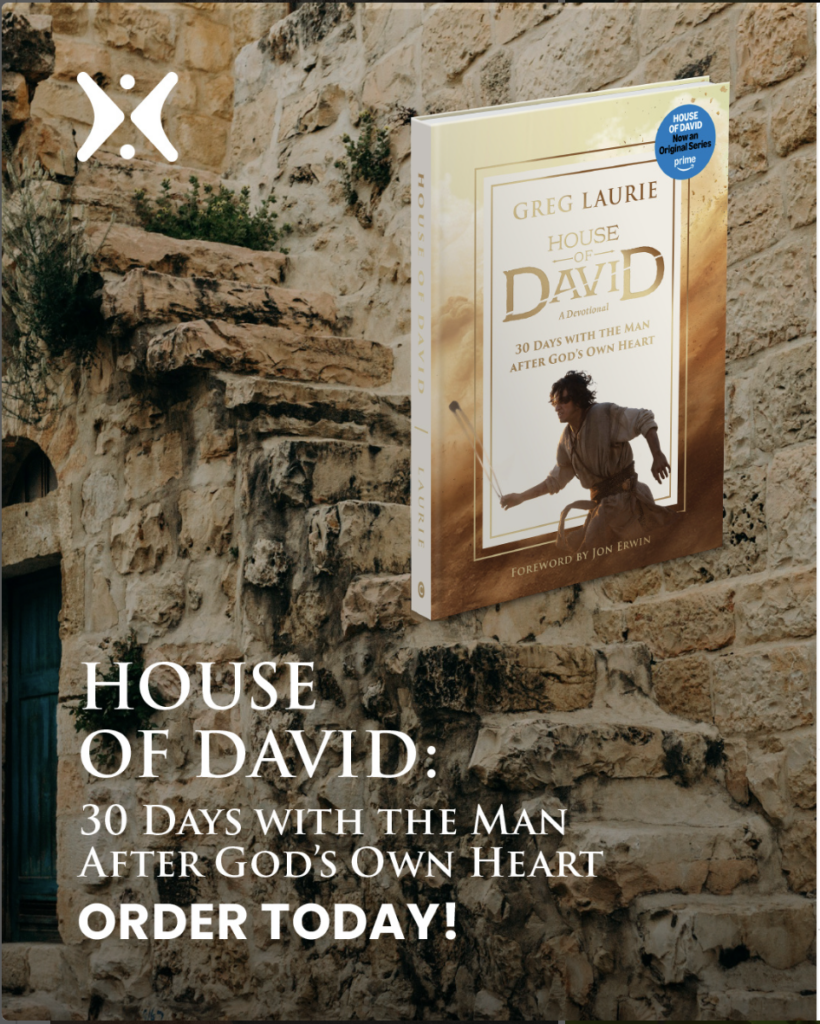HYC in the Arts: “Fear is the Enemy” (“House of David” Review)
“FEAR IS THE ENEMY!”
That’s the refrain of not only the first episode, but also of the entire panel discussion that immediately followed the premiere I attended at Cinemark West Plano on Tuesday evening. The panel was chaired and moderated by Dallas Jenkins, creator of “The Chosen.” It also included the two main directors, Jon Erwin and Jon Gunn, as well as the wonderful Michael Iskander, who plays young David. I’ll share more about that conversation in a future post. But, I first wanted to address the elephant in the room, what do we do with such a violent “Christian TV show?” Well, the answer is in the Psalms, I think. Maybe?

Oh that you would slay the wicked, O God,
Oh men of blood, depart from me!
They speak against you with malicious intent,
Your enemies take your name in vain.
Do I not hate those who hate you, O LORD?
And do I not loathe those who rise up against you?
I hate them with complete hatred,
I count them my enemies.
–Psalm 139:19-22 ESV
For the longest time I have pondered the next verses in Psalm 139, verses 19-22, wondering what place such expressions of hatred and loathing have in the midst of such a beautiful psalm…[David asking the Lord to smite his enemies]…I know from my Bible college and seminary days that this is an imprecatory psalm, in which David expresses emotions of righteous anger and hatred towards God’s enemies in ways that were common for God-fearing Jews…If we focus solely on the literary genre these verses fit into, we run the risk of missing the point…More than any other character in the Bible, David’s life illustrates the self-examination process—the movement from total lack of awareness to self-awareness, confession of sin, forgiveness, cleansing and real life change…
–Ruth Haley Barton, “Sacred Rhythms”
What is HATE doing in the Bible? And what does it have to do with the new “House of David” show coming out today on Amazon? I, too, have more questions than answers myself these days.
In sum, if I had to answer these impossible questions, I would say that David was a man of extremes.
David was a man of
love and hate,
peace and war,
killing and birthing,
good and evil.

Anything short of owning the whole tapestry of David’s messy and bloody life sells him short.
David was a “man after God’s own heart.”
David was a king with “blood on his hands” who would never build God’s temple.
David wrote the psalms.
David committed adultery & conspiracy to commit murder.
David was as sinner. David was a saint.
David was BOTH.
In short, David was complicated.
So, giving even a reasonable review of this new show remains equally complicated, especially since Amazon has insisted on comparing it two of the most viewed shows in the history of television:
“The Chosen” and “Game of Thrones” (and “House of Dragon”).
Not a pair I would have made or imagined or put on my Bingo card, but that’s the one we get. Although “The Chosen” has had some moderate violence, this show is closer to GOT in its sensibilities. But, Rome was violent (Mel Gibson’s “The Passion” recounts this well). The Old Testament is violent.
But, The “Game of Thrones” revels in and indulges in violence that’s clearly worldly.
It’s the way of the world, the way of the gun; it’s the trading of an evil for a lesser one.
–Derek Webb, “Savior on Capital Hill”
For the Bible, Jesus’ path of nonviolence and surrender is “the way, the truth and the life.” So, who are we following when we watch this violent show?
I’m not sure. We don’t know how the show will turn out yet. But, I’m hopeful. After meeting the shows creator and director and the actor who plays David, I think they are trying to be faithful to a very tough violent text. They are trying to tell a story on Amazon’s budget and dime, so it’s going to look like an Amazon show (it looks strangely similar to “Rings of Power” and to Brad Pitt’s “Troy” and “GOT” from what I can tell; a fuller review will come later once I’ve watched the show a few more times).
I wished that the show cut away 3-5 seconds earlier on several of the violent scenes, but the show chooses to be gritty and warmongering. David certainly was early in his life. Again, the Bible said he indulged in violence, too. Saul asks for 100 dead Philistines; David brings back pieces from 200 (you can read the story for more graphic details in the Bible). David was a man of pride, so taking trophies from his conquests seems a bit appropriate in how the show depicts him.
Yet, we are seeing a man, most of all, “in process,” under renovation, if you will. David is a character who develops real-time and we have his hidden thought journals in the form of the psalms. Let’s conclude with Barton one more time helping us see the importance of Psalm 139:
In the safety that comes from knowing that he is secure in God and has been lovingly formed by God, he is able to let the darker elements of himself emerge in God’s presence.
–Ruth Haley Barton, “Sacred Rhythms”
It is that inner darkness, those inner demons that David fights publically with in the form of his psalms. I believe David was bringing his vocation as general before the Lord in Psalm 139:19; I believe David knew he liked the violence a little too much and asked God to purge that part away from him with forgiveness and hyssop; I believe that we, too, have darkness and sin to be purged if only we’re brave enough to be searched, if only we’re brave enough to ask:
Search me, O God, and know my heart,
Try me and know my thoughts!
And see if there be any grievous way in me,
And lead me in the way everlasting.
–Psalm 139:23-24 ESV
That’s my challenge for all of us. Search me, O God. Where is my heart stolen by lesser loves of money, fame, sex, anger, violence, and shame? Where do I have grievous thoughts about people the world says I should hate? Where are the parts of me that want to remain in the shadows but need God’s cleansing light of confession (1 John 1:9-10)?
I pray we follow in the true David’s footsteps on our way back to that “old rugged cross.” I pray that as we limp and stumble in the footsteps of the saints, we find the “way everlasting.” Finally, I pray that we learn to live and set our watching habits by faith and not by fear.

Above is a 30 day Devotional guide for during Lent if you’d like to follow along with the show that was gifted to me for attending the show. I will review the devotional guide soon as well.
Here’s the “HOUSE OF DAVID” Release Schedule:
February 27th: Episodes 1-3 (Available NOW; WARNING: some graphic war violence and some suggestive scenes; also spiritual warfare and witchcraft)
March 6th: Episode 4
March 13th: Episode 5
March 20th: Episode 6
March 27th: Episode 7
April 3rd: Episode 8 (Season Finale)
See More